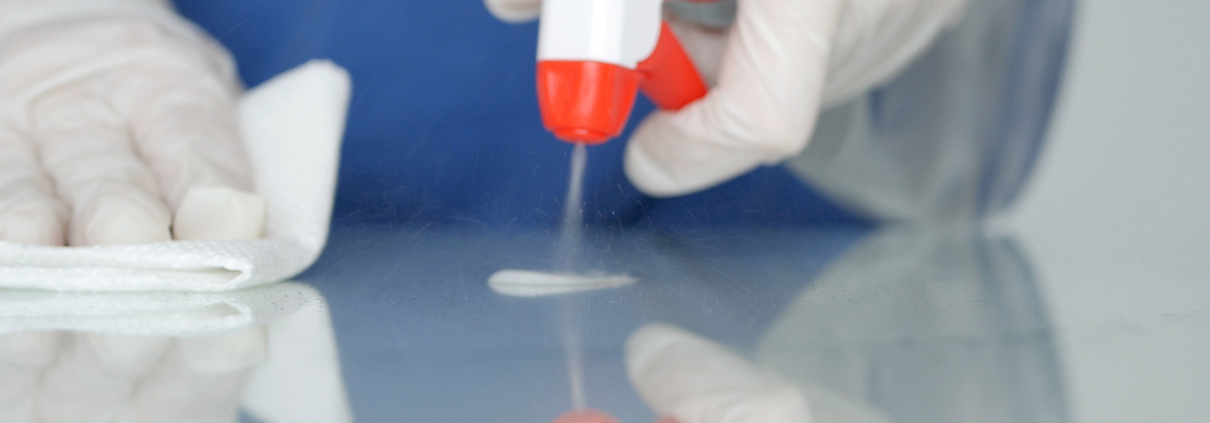How to Clean & Prevent Infection in GP Waiting Rooms
Every year, the UK is hit by multiple viruses. Some of these are seasonal, including influenza A, influenza B, RSV, and rhinovirus. And of course, we must now live with Covid-19 alongside these common viruses.
GP waiting rooms can inadvertently help spread infection. Patients may visit their GP about an unrelated condition, but leave having caught a new infection.
In this post, we’ll explore some of the measures GP surgeries can adopt to prevent and control the risks of infection, through the winter months and beyond.
New IPC Guidance Policies for GP Surgeries
The NHS Infection Prevention and Control team (IPC) released a new set of policies in July 2021. For more information, you can read the latest IPC guidelines for general practice.
Some of the advised measures include:
- Site specific policies. All GP surgeries should have effective infection prevention control policies relevant for their practice. It should be regularly updated and accessible to all. Also, all surgeries should appoint an IPC lead, who has the authority to implement change where it’s needed.
- The IPC policy should cover staff training requirements, and specify how frequently staff should receive training updates.
- Contractors should follow a general cleaning schedule. This should include detailed guidelines for specific areas, fixtures, and fittings, with priority given to high-frequency touch items including door handles and light switches.
- The IPC policy should advise on what PPE to use, and when. It should also cover staff training in effective use and disposal of PPE.
Cleaning & Infection Control in GP Waiting Rooms
Cleaning Waiting Room Soft Furnishings
Viruses and bacteria can linger and spread in the fibres of carpets and curtains. For this reason, clinical areas should not have carpets. But there should be clear policies in place for the frequency of cleaning carpets, curtains, and other soft furnishings in waiting rooms. There should also be specific guidelines to follow should any item of furniture get contaminated with body fluids or spillages.
Hand Hygiene in GP Waiting Rooms
All staff and patients should have access to adequate handwashing facilities. Staff should follow standard hand hygiene protocols. All patients should be encouraged to wash their hands as frequently as possible, and ideally before and after they interact with doors, light switches, and other possible infection vectors.
Cough and Sneeze Etiquette Communication
Catch it, bin it, kill it. All staff and patients should cover their nose and mouth with a disposable tissue when sneezing, coughing, wiping or blowing. They should then immediately dispose of that tissue before washing their hands. GP surgeries can promote good cough and sneeze etiquette among their patients through making the guidelines clearly visible, and through providing tissues, plastic bags for disposal, and hand hygiene facilities.
Read our full guide to standard infection control precautions. These precautions are relevant to all healthcare settings, which of course includes GP surgeries.
Ventilation Concerns for Infection Prevention and Control
GP waiting rooms are enclosed spaces where infected patients can spend extended periods of time. And in the winter months, waiting rooms are less likely to be adequately ventilated. Surgeries will keep their doors and windows closed while running their central heating. These conditions can create a hotbed of infection.
A good air purifier can completely filter the air in a room, trapping and killing any viruses that might be lingering in the atmosphere. This, combined with an effective cleaning policy, can make a huge difference in reducing the risk of infection in GP waiting rooms.
The Blueair air purifier has a Clean Air Delivery Rate (CADR) that will completely filter the air in a GP waiting room 4.8 times an hour. It uses a series of filters to capture 99.97% of airborne particles as small as 0.1 micron – including many common seasonal viruses and bacteria.
You can browse our full range of air purifiers for healthcare settings.
Got some questions? Need some support? Get in touch to talk to our friendly team of expert air purification consultants.



